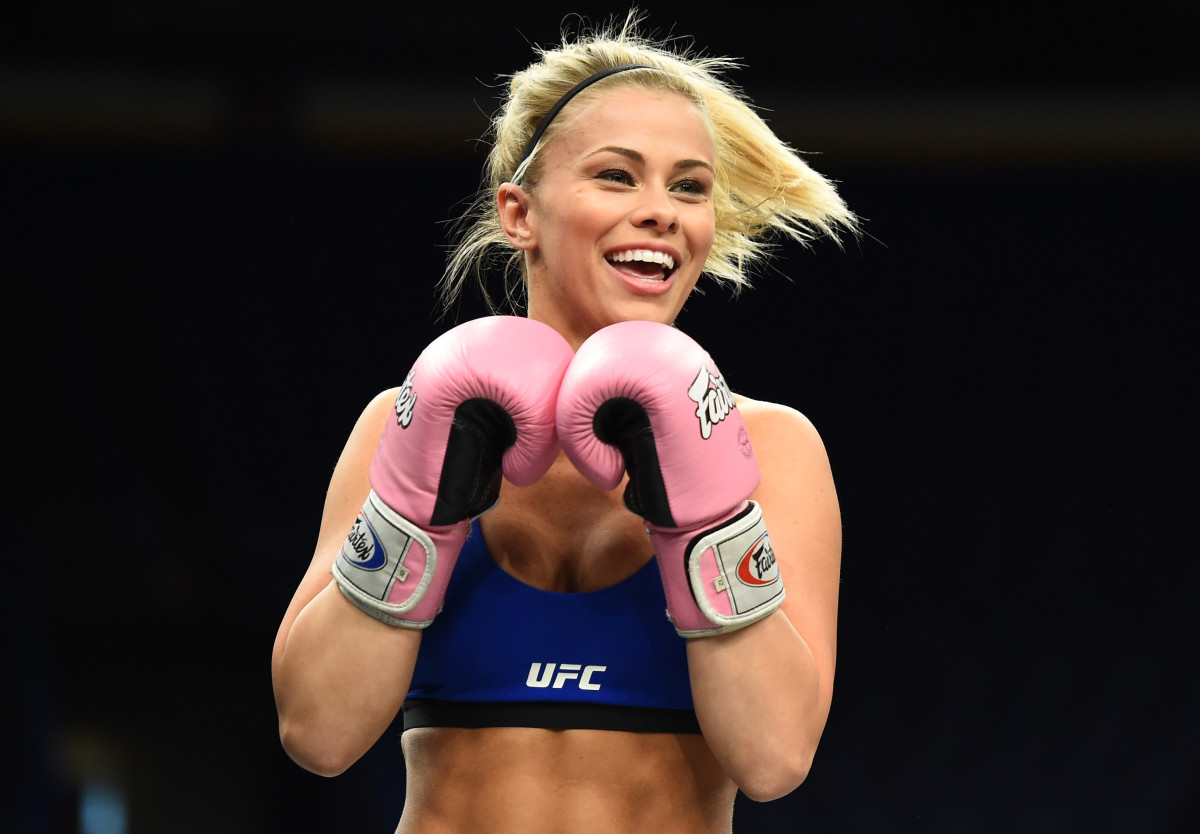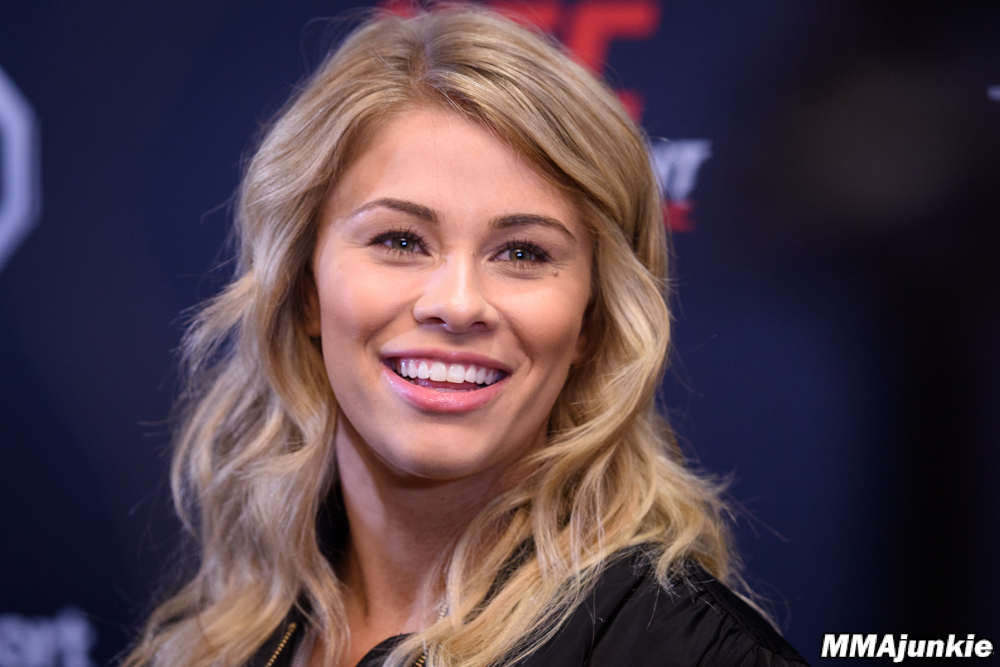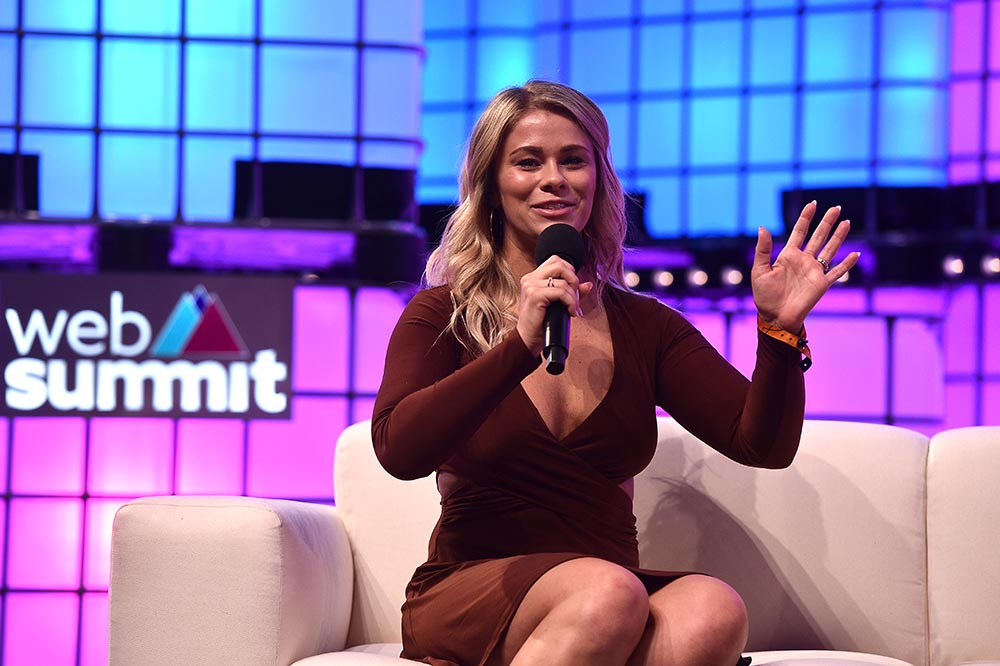
Paige VanZant OnlyFans Content Leaked: A Comprehensive Overview
The recent leak of Paige VanZant's OnlyFans content has sparked widespread discussion and raised questions about online privacy and consent. OnlyFans is a subscription-based platform where creators can share exclusive content with their subscribers. VanZant, a former UFC fighter and current Bare Knuckle Fighting Championship competitor, has been an active user of the platform since 2020.
The leaked content includes explicit photos and videos that VanZant had shared with her subscribers. The leak has been met with mixed reactions, with some people expressing concern for VanZant's privacy and others arguing that she should have known the risks of sharing such content online. The incident has also highlighted the need for platforms like OnlyFans to do more to protect the privacy of their users.
This article will provide a comprehensive overview of the Paige VanZant OnlyFans leak, including its impact on her career, the legal implications, and the broader implications for online privacy. We will also discuss the steps that users can take to protect their privacy when using OnlyFans and other similar platforms.
Paige VanZant OnlyFans Leaked
The recent leak of Paige VanZant's OnlyFans content has raised a number of important issues, including privacy, consent, and the role of social media in our lives. It is important to understand these issues in order to make informed decisions about how we use social media and share our personal information online.
- Privacy: The leak of VanZant's OnlyFans content has raised concerns about the privacy of users on social media platforms. It is important to remember that anything you share online can be seen by others, even if you think it is private.
- Consent: VanZant has said that she did not consent to the leak of her OnlyFans content. This raises important questions about consent and the role of social media companies in protecting their users' privacy.
- Social media: The leak of VanZant's OnlyFans content has highlighted the role of social media in our lives. It is important to be aware of the risks and benefits of using social media, and to make informed decisions about how we use these platforms.
- Cybersecurity: The leak of VanZant's OnlyFans content has also raised concerns about cybersecurity. It is important to take steps to protect your online accounts and personal information from hackers and other threats.
- Media ethics: The leak of VanZant's OnlyFans content has also raised questions about media ethics. Some media outlets have published stories about the leak without VanZant's consent, which has caused her further distress.
The leak of Paige VanZant's OnlyFans content is a reminder that we need to be careful about what we share online. We need to be aware of the risks and benefits of using social media, and we need to make informed decisions about how we use these platforms. We also need to hold social media companies accountable for protecting our privacy and for respecting our consent.
Privacy
The leak of Paige VanZant's OnlyFans content is a reminder that we need to be careful about what we share online. Anything you post on social media can be seen by others, even if you think it is private. This is because social media companies often store our data in insecure ways, and hackers can easily access it. Once your data is leaked, it can be used to blackmail you, embarrass you, or even steal your identity.
The leak of VanZant's OnlyFans content is a particularly egregious example of how social media can be used to violate our privacy. VanZant is a public figure, and she has a right to privacy just like anyone else. However, the leak of her OnlyFans content has caused her a great deal of distress. She has been subjected to online harassment and ridicule, and she has even received death threats.
The leak of VanZant's OnlyFans content is a wake-up call for all of us. We need to be more aware of the risks of sharing personal information online. We need to be careful about what we post on social media, and we need to make sure that our data is secure.
Here are some tips for protecting your privacy online:Use strong passwords and don't reuse them across multiple accounts.Enable two-factor authentication on your social media accounts.Be careful about what you post on social media.Don't share personal information with people you don't know.Be aware of the privacy settings on your social media accounts.Use a VPN to encrypt your online traffic.Be cautious about clicking on links in emails or text messages.Educate yourself about the risks of social media and online privacy.By following these tips, you can help to protect your privacy online.Consent
Consent is a critical component of "paige vanzant only fans leaked" because it relates to the unauthorized distribution of private and sensitive content without the individual's knowledge or permission. In this case, VanZant has explicitly stated that she did not consent to the leak, highlighting the violation of her privacy and bodily autonomy.
The absence of consent raises significant ethical and legal concerns. It undermines the individual's right to control their own image and personal information, potentially leading to emotional distress, reputational damage, and other harmful consequences. The leak of VanZant's OnlyFans content serves as a stark reminder of the importance of consent in the digital age, where personal data can be easily shared and exploited.
Social media companies have a crucial role to play in protecting their users' privacy and upholding the principle of consent. They must implement robust measures to prevent unauthorized access and distribution of private content, such as strong encryption, user authentication, and clear policies against non-consensual sharing. Additionally, social media companies should provide users with comprehensive privacy settings and educational resources to empower them to protect their personal information.
The case of "paige vanzant only fans leaked" underscores the urgent need for a broader conversation about consent and privacy in the digital realm. It highlights the importance of respecting individuals' boundaries, obtaining explicit consent before sharing personal content, and holding social media companies accountable for protecting users' privacy rights.
Social media
The leak of Paige VanZant's OnlyFans content has sparked a wider conversation about the role of social media in our lives. This incident has brought to light the potential risks and benefits associated with using social media platforms, and the importance of making informed decisions about how we use them.
One of the key risks associated with social media is the potential for privacy breaches. Social media companies collect and store vast amounts of data about their users, including personal information, browsing history, and even facial recognition data. This data can be used to target users with advertising, but it can also be hacked or leaked, as was the case with VanZant's OnlyFans content.
Another risk associated with social media is the spread of misinformation. Social media platforms have become a breeding ground for false and misleading information, which can have a negative impact on our society. For example, misinformation about the COVID-19 pandemic has led to people making poor health decisions, and misinformation about elections has led to people losing faith in the democratic process.
However, social media also has a number of benefits. Social media platforms can be used to stay connected with friends and family, share information, and learn new things. Social media can also be used to raise awareness for important causes and to mobilize people for action.
The key to using social media safely and effectively is to be aware of the risks and benefits involved. We should all take steps to protect our privacy online, and we should be critical of the information we see on social media. We should also use social media to connect with others, share information, and make a positive impact on the world.
Cybersecurity
The leak of Paige VanZant's OnlyFans content has highlighted the importance of cybersecurity. Cybersecurity refers to the practice of protecting electronic information and systems from unauthorized access, use, disclosure, disruption, modification, or destruction. There are a number of things you can do to protect your online accounts and personal information from hackers and other threats, including:
- Use strong passwords and don't reuse them across multiple accounts. Strong passwords should be at least 12 characters long and contain a mix of uppercase and lowercase letters, numbers, and symbols.
- Enable two-factor authentication on your online accounts. Two-factor authentication adds an extra layer of security to your accounts by requiring you to enter a code from your phone or email in addition to your password when you log in.
- Be careful about what you post on social media. Hackers can use information you post on social media to target you with phishing attacks or other scams.
- Don't click on links in emails or text messages from people you don't know. Phishing attacks often use links to malicious websites that can steal your personal information.
By following these tips, you can help to protect your online accounts and personal information from hackers and other threats. Cybersecurity is an important part of protecting your privacy and security online.
Media ethics
The leak of Paige VanZant's OnlyFans content has raised a number of ethical questions for the media. Some media outlets have published stories about the leak without VanZant's consent, which has caused her further distress. This has led to a debate about the role of the media in protecting the privacy of individuals, and the importance of obtaining consent before publishing stories about their personal lives.
- Consent: VanZant has said that she did not consent to the publication of stories about the leak of her OnlyFans content. This raises important questions about the role of the media in obtaining consent before publishing stories about individuals' private lives.
- Privacy: The publication of stories about the leak of VanZant's OnlyFans content has raised concerns about the privacy of individuals. The media has a responsibility to protect the privacy of individuals, and this includes not publishing stories about their personal lives without their consent.
- Sensationalism: Some media outlets have been accused of sensationalizing the story of the leak of VanZant's OnlyFans content. This has led to criticism of the media for putting profits ahead of the well-being of individuals.
- Victim blaming: Some media outlets have been accused of victim blaming in their coverage of the leak of VanZant's OnlyFans content. This has led to criticism of the media for perpetuating harmful stereotypes about women.
The leak of VanZant's OnlyFans content has highlighted the need for the media to be more ethical in its coverage of stories about individuals' private lives. The media has a responsibility to protect the privacy of individuals, and this includes obtaining consent before publishing stories about their personal lives. The media also has a responsibility to avoid sensationalism and victim blaming in its coverage of stories about individuals' private lives.
Frequently Asked Questions (FAQs)
This section aims to address common questions and clarify potential misconceptions surrounding the "Paige VanZant OnlyFans Leaked" incident. These FAQs provide concise and informative answers to queries that readers may have.
Question 1: What is the nature of the "Paige VanZant OnlyFans Leaked" incident?
Answer: The incident refers to the unauthorized disclosure of explicit content from Paige VanZant's private OnlyFans account, which resulted in the distribution of her private photos and videos without her consent.
Question 2: What are the legal implications of the leak?
Answer: The leak has raised concerns regarding privacy violations, unauthorized distribution of private content, and potential copyright infringement. Legal actions may be pursued to address these issues and protect VanZant's rights.
Question 3: How has Paige VanZant responded to the leak?
Answer: VanZant has expressed distress and concern over the unauthorized distribution of her private content. She has condemned the leak and is seeking legal recourse to protect her privacy and hold accountable those responsible.
Question 4: What are the ethical considerations surrounding the leak?
Answer: The leak raises ethical questions about consent, privacy, and the responsibility of individuals and media outlets in handling sensitive personal information. It highlights the importance of respecting individuals' privacy and obtaining consent before sharing or publishing private content.
Question 5: What measures can individuals take to protect their privacy online?
Answer: Individuals should be mindful of the content they share online, use strong passwords and privacy settings, and be cautious of suspicious links or requests for personal information. They should also familiarize themselves with their rights and legal protections related to privacy.
Question 6: What are the broader implications of the leak for social media platforms?
Answer: The leak underscores the need for social media platforms to prioritize user privacy and security. They should implement robust measures to prevent unauthorized access and distribution of private content, and provide clear guidelines and support mechanisms for users to protect their data.
These FAQs provide a snapshot of the key issues and concerns surrounding the "Paige VanZant OnlyFans Leaked" incident. Further discussion and analysis are warranted to explore the legal, ethical, and social implications of this case.
Moving forward, the article delves into the ongoing legal proceedings and potential consequences for those responsible for the leak.
Top Tips for Protecting Your Privacy Online
In today's digital age, it's more important than ever to protect your privacy online. Here are a few simple tips to help you keep your personal information safe:
1. Use strong passwords and don't reuse them across multiple accounts.
Strong passwords should be at least 12 characters long and contain a mix of uppercase and lowercase letters, numbers, and symbols. Don't reuse the same password for multiple accounts, as this makes it easier for hackers to gain access to all of your accounts if one of them is compromised.
2. Enable two-factor authentication on your online accounts.
Two-factor authentication adds an extra layer of security to your accounts by requiring you to enter a code from your phone or email in addition to your password when you log in. This makes it much more difficult for hackers to access your accounts, even if they have your password.
3. Be careful about what you post on social media.
Hackers can use information you post on social media to target you with phishing attacks or other scams. Be careful about sharing personal information, such as your address, phone number, or email address. Also, be wary of clicking on links in posts from people you don't know.
4. Don't click on links in emails or text messages from people you don't know.
Phishing attacks often use links to malicious websites that can steal your personal information. If you receive an email or text message from someone you don't know, don't click on any links. Instead, hover over the link to see where it goes. If it's not a website you recognize, don't click on it.
5. Keep your software up to date.
Software updates often include security patches that can help to protect your computer from hackers. Make sure to install software updates as soon as possible.
6. Use a VPN when you're using public Wi-Fi.
VPNs encrypt your internet traffic, making it more difficult for hackers to eavesdrop on your online activity. This is especially important when you're using public Wi-Fi, as these networks are often less secure than private Wi-Fi networks.
7. Be aware of the privacy settings on your social media accounts.
Most social media platforms allow you to control who can see your posts and personal information. Make sure to review your privacy settings and adjust them to your comfort level.
8. Educate yourself about online privacy.
The more you know about online privacy, the better you'll be able to protect yourself from hackers and other threats. There are a number of resources available online that can help you learn more about online privacy.
By following these tips, you can help to protect your privacy online.
Remember, protecting your privacy online is an ongoing process. By staying vigilant and taking the necessary precautions, you can help to keep your personal information safe.
Conclusion
The leak of Paige VanZant's OnlyFans content has sparked a wider conversation about privacy, consent, and the role of social media in our lives. This incident has highlighted the importance of protecting our personal information online and being aware of the risks associated with sharing sensitive content.
One of the key takeaways from this incident is that we need to be more mindful of what we share online. Anything we post can be seen by others, even if we think it is private. We need to be especially careful about sharing sensitive information, such as photos and videos, as this type of content can be easily shared and exploited.
Another important point to consider is the role of social media companies in protecting our privacy. Social media companies have a responsibility to protect the data of their users and to prevent unauthorized access to private content. They need to do more to implement robust security measures and to educate users about the risks of sharing personal information online.
The leak of Paige VanZant's OnlyFans content is a reminder that we need to be more vigilant about protecting our privacy online. We need to be careful about what we share, and we need to hold social media companies accountable for protecting our data. By working together, we can create a safer and more secure online environment for everyone.
Ruby rose only fans leaks
Astrid wett only fans leaks
Rachel cook only fans leak

Paige VanZant Shares Throwback Sports Illustrated Swimsuit Video The

Paige VanZant vs. Rachael Ostovich set for UFC’s debut on ESPN

Paige VanZant joins Gamebred Fighting Championship commentary lineup
ncG1vNJzZmiilZfGb7%2FFqGlnnJmctrWty6ianpmeqL2ir8SsZZynnWS9orXGnmSvmZ6vrq%2FAjKilpbFdm66vv4ylnJqjlZl7qcDMpQ%3D%3D